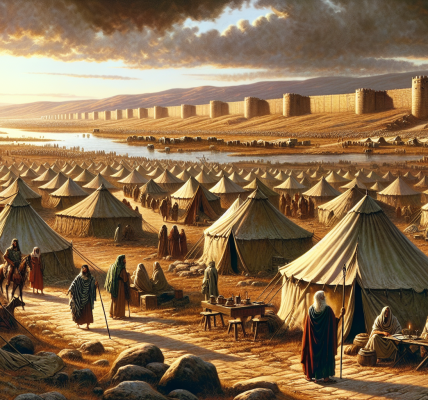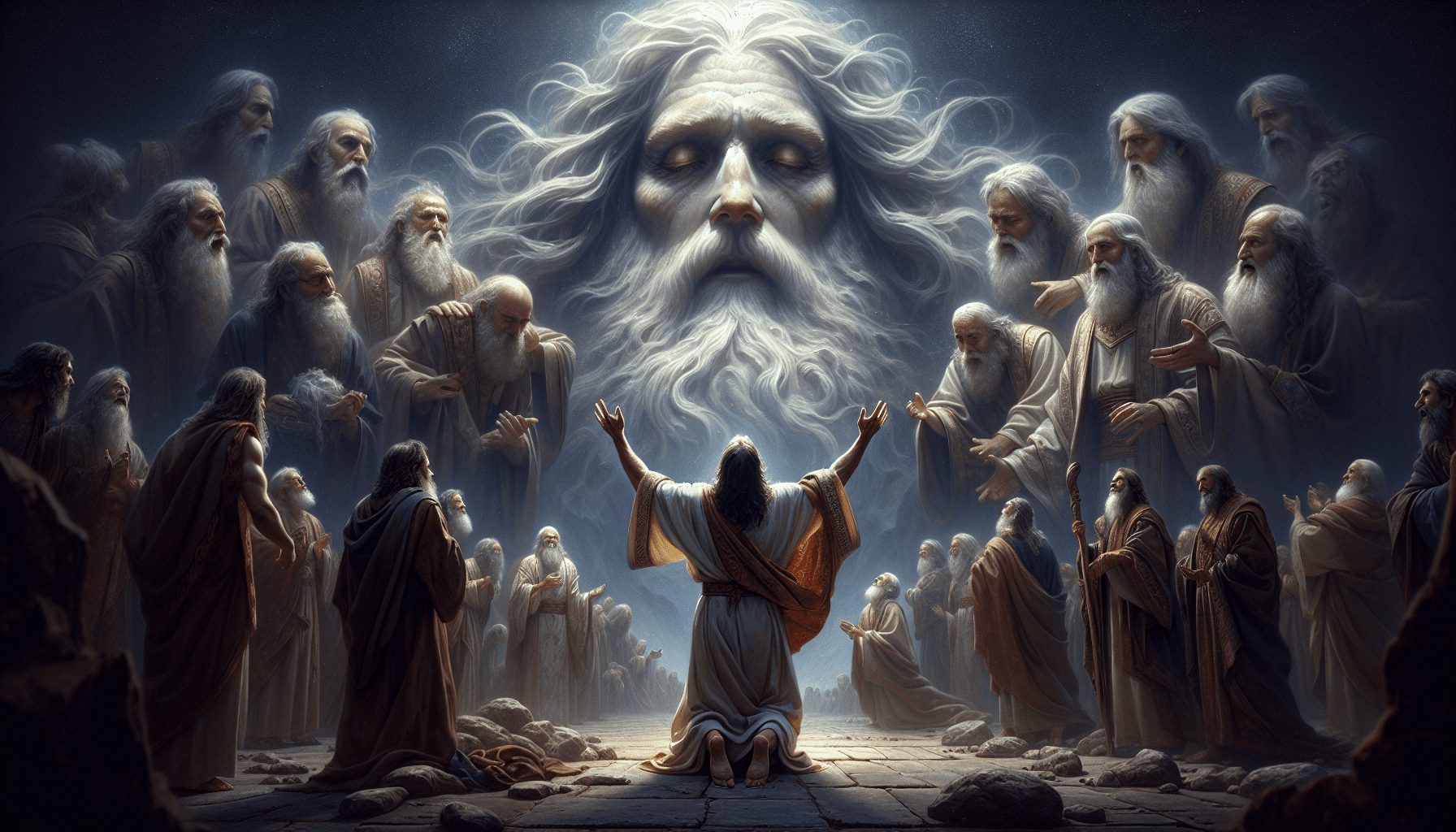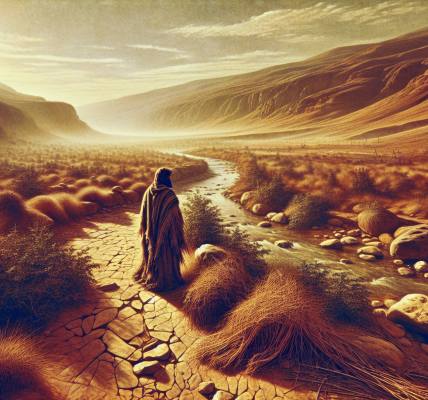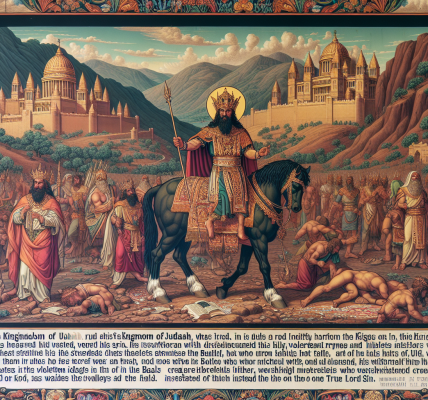**The Vision of the Sacred Portion**
In the twenty-fifth year of Israel’s exile, the hand of the Lord came mightily upon Ezekiel, the priest and prophet, lifting him in a divine vision to a high mountain. Before him stretched a land transformed—not as it was, but as it would be, ordered by the perfect will of God. The Lord spoke with clarity, revealing the measurements and laws of the land to be apportioned when His people were restored.
### **The Sacred District**
The Lord commanded Ezekiel, *”When you divide the land by lot among the tribes of Israel, you shall set apart a portion for the Lord, a holy district.”*
This sacred portion was to be 25,000 cubits long and 20,000 cubits wide—a vast and consecrated space in the heart of the land. Within it, a smaller square of 500 cubits on each side was marked for the sanctuary, the Most Holy Place. The remaining area was designated for the priests, the ministers of the Lord who served before Him.
Adjacent to this holy district was a portion for the Levites, 25,000 cubits long and 10,000 cubits wide. These faithful servants, though not granted land as an inheritance in the days of old, would now have a permanent place near the sanctuary, where they could dwell and serve God without distraction.
Beyond these sacred lands, a portion of 25,000 by 5,000 cubits was set aside for the city, where all the people of Israel could gather—common ground for all tribes, a place of dwelling and commerce, yet never encroaching upon the holy precincts.
### **The Prince’s Inheritance**
The Lord then declared that the remaining land on either side of the sacred district would belong to the prince. *”It shall be his possession in Israel,”* said the Lord, *”so that My princes shall no longer oppress My people, but shall let the house of Israel have the land according to their tribes.”*
This was a new decree—no longer would the rulers of Israel seize land unjustly or burden the people with heavy taxes. The prince’s portion was measured and fixed, ensuring justice and equity. His role was not to exploit, but to uphold righteousness, providing for the needs of the people and the worship of God.
### **Offerings and Feasts**
The Lord then gave Ezekiel detailed instructions concerning the offerings to be presented by the prince on behalf of the people.
*”On the first day of the first month,”* the Lord declared, *”you shall take a young bull without blemish and purify the sanctuary.”* The blood of the sacrifice was to cleanse the altar, preparing it for the year’s worship.
At the appointed feasts—Passover, the Feast of Unleavened Bread, and the Feast of Tabernacles—the prince was to provide burnt offerings, grain offerings, and drink offerings. Six lambs and a ram without defect were to be offered daily during these sacred times, along with fine flour, oil, and wine, all measured precisely according to God’s command.
The people, too, were to bring their offerings willingly, not under compulsion but in joyful worship. *”The prince shall provide the burnt offerings, grain offerings, and drink offerings at the feasts, the new moons, and the Sabbaths—all the appointed festivals of the house of Israel,”* the Lord proclaimed.
### **Justice in Weights and Measures**
The Lord then turned Ezekiel’s attention to matters of daily life. *”You shall have just balances, a just ephah, and a just bath,”* He declared. The ephah (for dry measure) and the bath (for liquid measure) were to be of equal volume—one-tenth of a homer. The shekel was to consist of twenty gerahs, and weights were to be true and exact.
No longer would merchants cheat the poor with false scales or deceitful measures. In this restored kingdom, holiness extended beyond the temple into the marketplace. Justice was not merely a human ideal—it was a divine command.
### **A Kingdom of Righteousness**
As the vision drew to a close, Ezekiel understood the profound message: the land was to reflect God’s holiness in all things. From the sacred sanctuary to the prince’s rule, from the feasts to the marketplace—everything was to be ordered according to the righteousness of the Lord.
The people of Israel, once exiled for their sins, would return to a land renewed, where God’s presence dwelt among them. No longer would they defile His name with injustice or idolatry. Instead, they would walk in His statutes, and He would be their God, and they would be His people.
And so, Ezekiel recorded the vision, knowing that though exile still lingered, the promise of restoration was sure. For the Lord had spoken, and His word would not return void.




